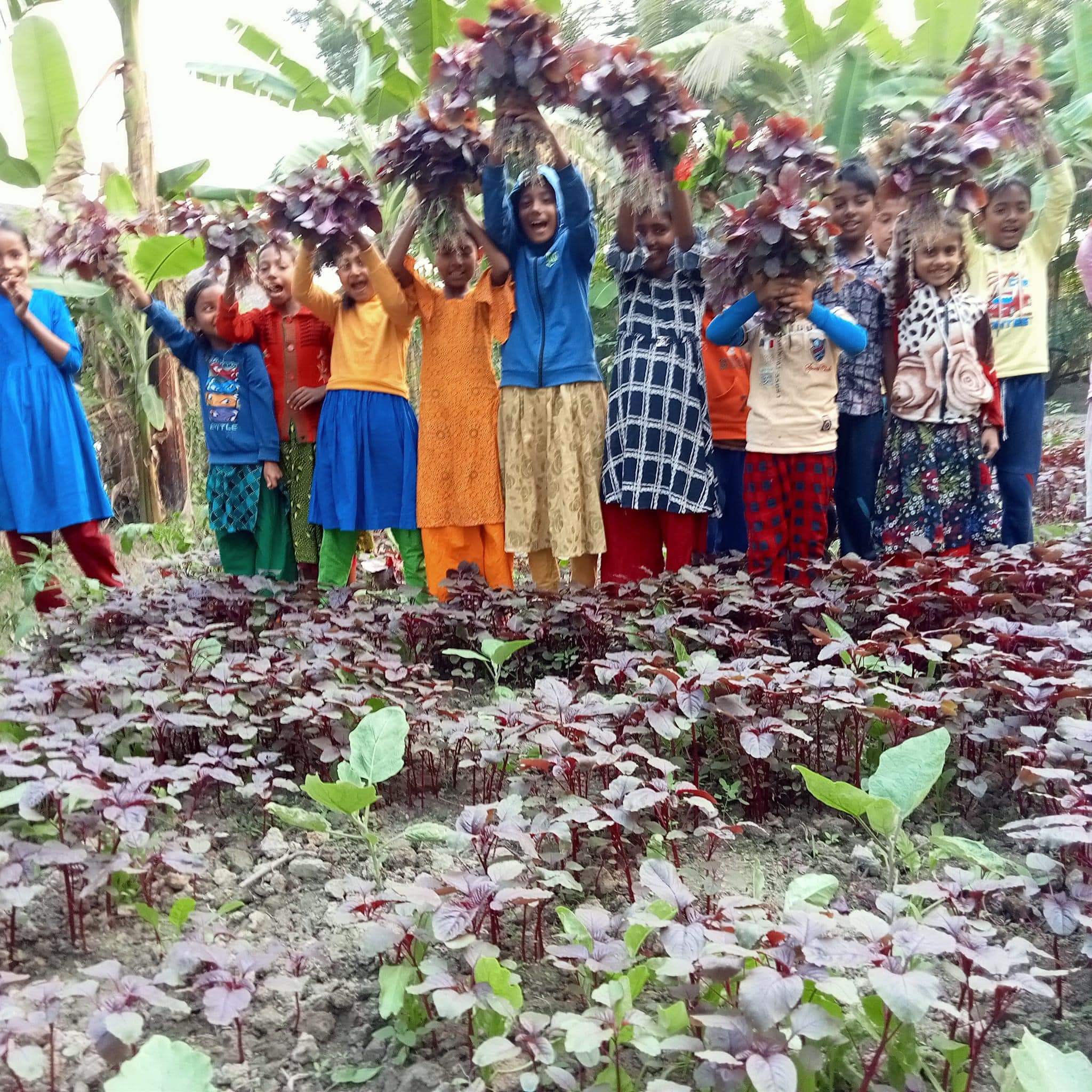
Increased food security and reduce malnutrition to end the hunger
General Food Assistance Programme(GFA)
The CODEC is actively involved in implementing the General Food Assistance (GFA) Programme, which commenced in January 2022 and is generously funded by the World Food Programme (WFP). This initiative is specifically aimed at providing essential food support to 44,753 Rohingya refugee households residing in nine different camps located within Catchments A and B of Ukhiya, Cox’s Bazar.
The overarching objective of this project is to enhance food security and improve the nutritional status of the Rohingya refugee households residing in the specified camps. With a focus on addressing the immediate needs of the vulnerable population, the project aims to alleviate hunger and reduce malnutrition among the beneficiaries, totaling 209,630 individuals.
To achieve these objectives, the project is designed to deliver various outputs that directly contribute to improving food security and nutritional outcomes. One of the primary mechanisms for providing food assistance is through the distribution of E-vouchers, which can be redeemed at designated WFP retail outlets. This approach not only ensures the timely delivery of essential food items but also empowers beneficiaries by allowing them to make choices based on their specific dietary needs and preferences.
In addition to E-voucher distribution, the project includes the establishment and management of Fresh Food Corners within the camps. These corners are dedicated spaces aimed at promoting access to fresh and nutritious food options, catering to the dietary requirements of the most vulnerable individuals within the refugee population.
Furthermore, the project emphasizes the importance of ensuring continued access to food during emergencies through the implementation of Rapid Response mechanisms. This includes the provision of in-kind food assistance and the distribution of hot meals, particularly during times of crisis or heightened food insecurity.
Overall, the GFA Programme implemented by CODEC in partnership with WFP plays a crucial role in addressing the immediate food needs of Rohingya refugee households, ultimately contributing to enhanced food security, improved nutrition, and the mitigation of hunger within the targeted population.
The Education and Protection for Refugee Children (EPRC) project
CODEC has been working for the marginalized coastal fisher folk communities since 1985 for the well-being of this community by addressing their problems. Various types of problem of fisher-folk community have identified through several FGDs regarding their rights. Domestic violence, early marriage, dowry, divorce, denial of rights is some of the major concerns in Bangladesh at present and CODEC is working is creating awareness to dismantle the problems gradually. The local Imam, marriage register, local attributors along with Union Chairmen, Attribution Council and Village Courts possess knowledge and skills and are motivated to play an efficient and effective role in the community. Union Parishad Chairmen and Rights activists of Human Rights Organizations and Lawyers Panel are working side by side with CODEC to establish a sustainable provision of conflict resolution service. Fisher-folk community has less access to justice and also have less opportunity to input their opinion in the policy formulation. CODEC had taken an initiative to revise “Protection and Conservation of Fish Act, 1950” according to the opinion of fisher-folk community with a consultation of law and policy expert through a project which was funded by Manusher Jonno Foundation (MJF). Poor households in disputes finds affordable access to justice through this sector of CODEC.
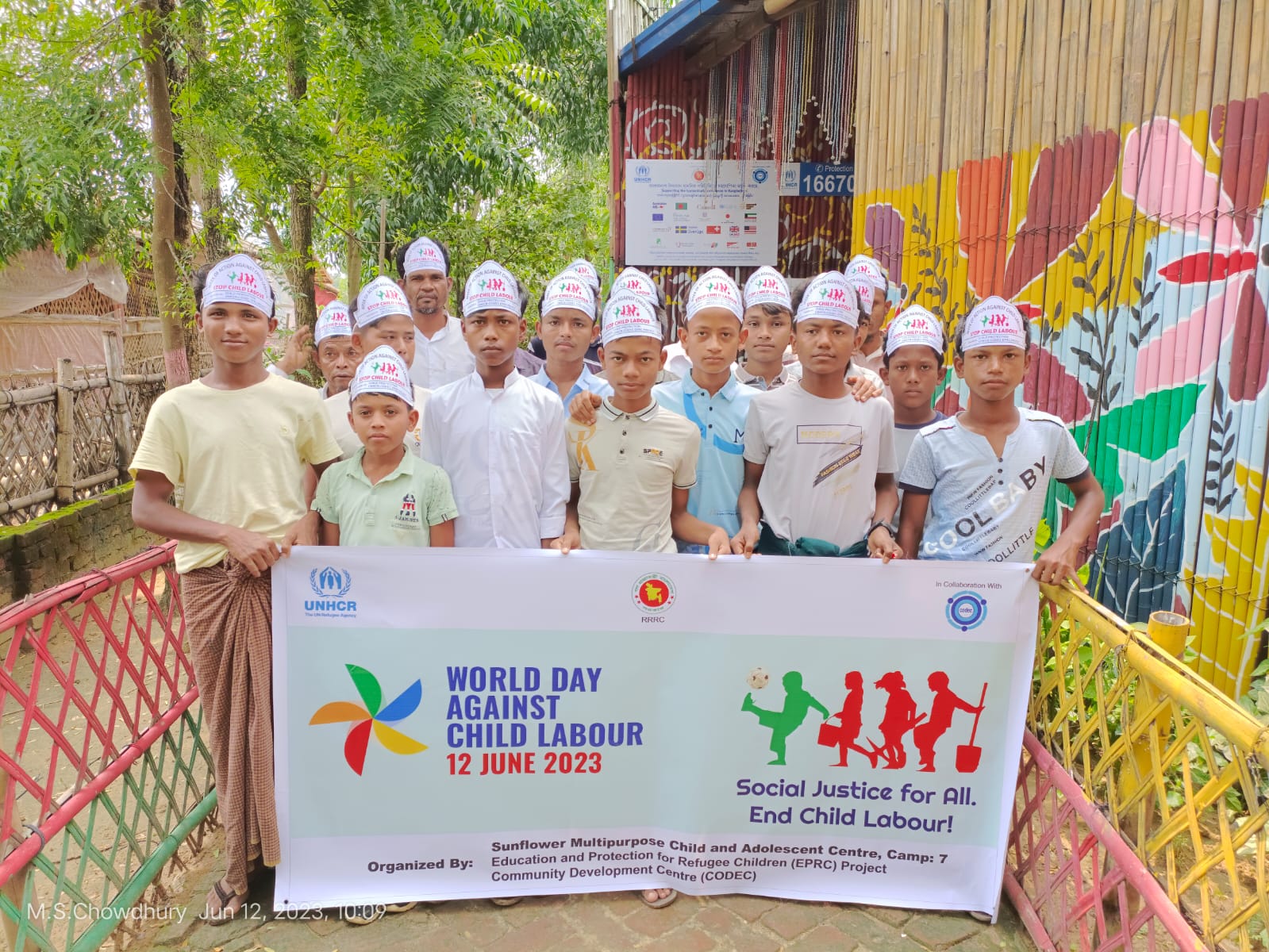
The project aims to provide quality education services and attain favorable protection environment for the Rohingya refugee children and youth in Cox’s Bazar and Bhasan Char.
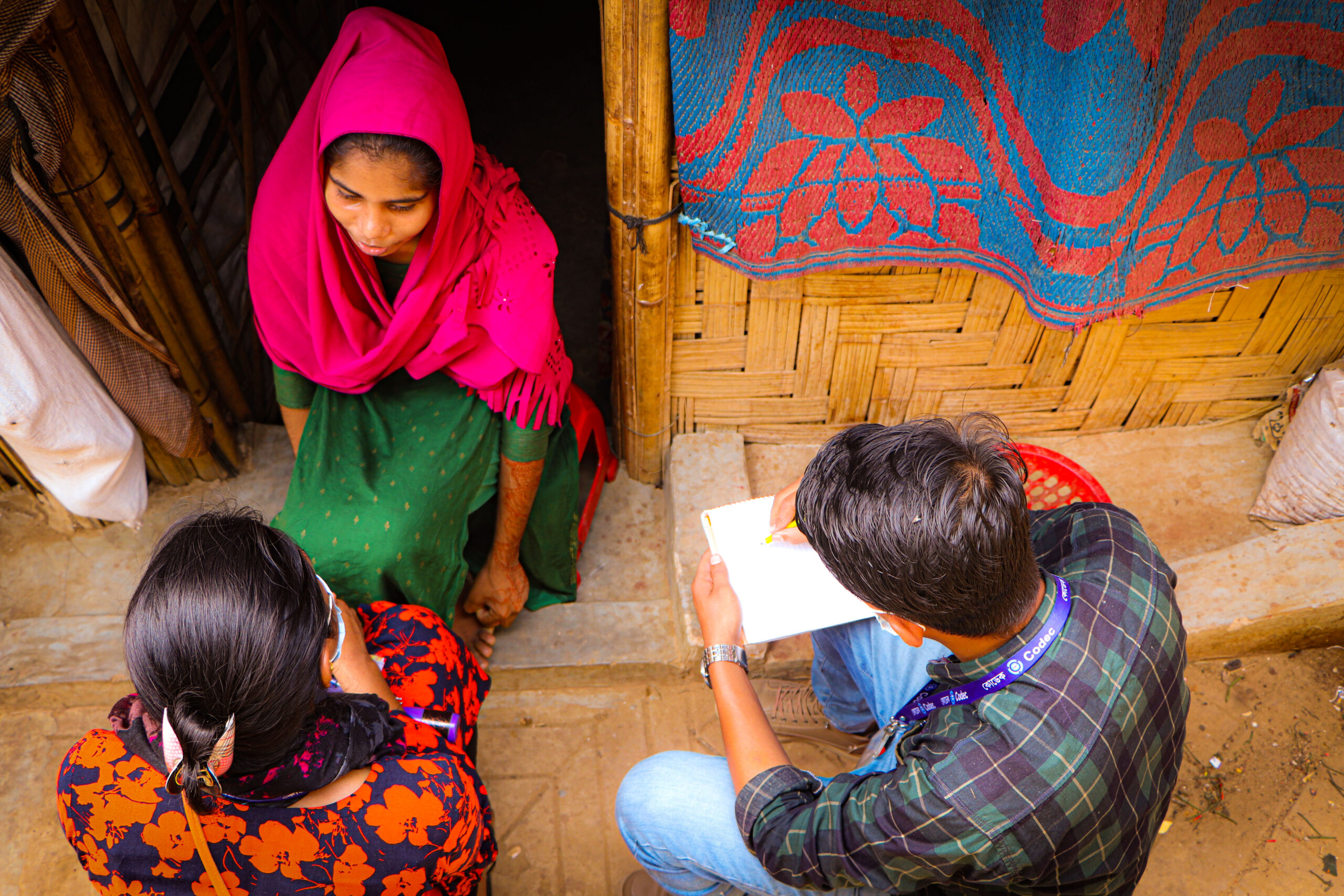
Let us go forward in this battle fortified by conviction that those who labour in the service of a great and good cause will never fail.
Rohingya children and adolescents aged 3-18 receive gender responsive, quality, inclusive education through the Myanmar curriculum and Early Childhood Development in the Rohingya refugee response, Cox’s Bazar.
Early Childhood Development (ECD): A total of 4,455 children (2209 boys, 2246 girls) between age 3- 5 years old will participate in ECD in 212 centres. These children will access early learning opportunities and opportunities to develop motor and cognitive skills, to boost social and emotional development and have a place for play, social interaction and forming of identity. To ensure a comprehensive child centred approach to early years’ education and development, parenting sessions form an important part of the ECD programme. To operate ECD centers in the community, 148 ECD facilitators will be trained and technically supported by UNICEF. Along with the facilitators, there will be 6 mentor teachers and 3 master trainers to improve the quality of ECD instruction and services for children.
Primary: Using Myanmar Curriculum (MC), a total of 41,453 (20,818 girls and 20,637 boys) with 2% Children with Disabilities will enroll in primary level grades from KG to Grade 5 in 726 Learning Facilities. All learners should achieve a minimum of 80% regular attendance each week. To support the program, 692 Rohingya Teachers and 417 Bangladeshi teachers will be engaged. Along with the teachers and Rohingya facilitators, there will be provision for 43 mentor teachers, 21 master trainers 18 disability inclusion volunteers, and 43 Rohingya female volunteers (supporting overaged adolescent learners in the primary section) to ensure quality inclusive education provision. Children will receive the required learning materials for these grades. Learners in kindergarten, grade 1, and grade 2 will complete Learning Status Checks whilst learners in grades 3-5 will sit an end-of-year assessment.
Secondary: A total of 2,890 (724 girls and 2,166 boys) children with 38 CwD will enroll in secondary grades (6 to 12) to continue secondary education through the MC. To support achievement in maths and science in grades 9 and higher, Two STEM specialist will provide targeted support for learners and teachers in the highest grades. Learners are expected to achieve 80% regular attendance and to sit an end-of-year assessment. 40 Learning Facilities (LFs) under the supervision of 57 Rohingya facilitators, 13 Bangladeshi teachers, 7 Rohingya Female Volunteers, 3 mentor teachers, and 2 Master trainers for further development. All learners will be provided with the necessary textbooks, stationery, and school bags and will complete a regular end-of-year assessment.
In addition to these essential educational provisions, CODEC’s UNICEF Education Project is committed to community sensitization initiatives, particularly focused on promoting girls’ education. This involves ensuring child safeguarding, gender equality, and promoting the prevention of sexual exploitation and abuse (PSEA) within the Rohingya community networks. Furthermore, the project leverages educational technology (EdTech) solutions to enhance teaching methodologies and facilitate distance learning, thereby bridging educational gaps and ensuring continued access to learning opportunities, particularly in challenging circumstances.
Through its multifaceted approach, the UNICEF Education Project endeavors to create a supportive learning environment conducive to the holistic development of Rohingya refugee children, equipping them with the necessary skills and knowledge to pursue further education, livelihood opportunities, and ultimately, contribute positively to their communities and society at large.
Protective Environment and Empowerment for Children, Adolescents and Youth" (Child Protection Project)
CODEC has been working for the marginalized coastal fisher folk communities since 1985 for the well-being of this community by addressing their problems. Various types of problem of fisher-folk community have identified through several FGDs regarding their rights. Domestic violence, early marriage, dowry, divorce, denial of rights is some of the major concerns in Bangladesh at present and CODEC is working is creating awareness to dismantle the problems gradually. The local Imam, marriage register, local attributors along with Union Chairmen, Attribution Council and Village Courts possess knowledge and skills and are motivated to play an efficient and effective role in the community. Union Parishad Chairmen and Rights activists of Human Rights Organizations and Lawyers Panel are working side by side with CODEC to establish a sustainable provision of conflict resolution service. Fisher-folk community has less access to justice and also have less opportunity to input their opinion in the policy formulation. CODEC had taken an initiative to revise “Protection and Conservation of Fish Act, 1950” according to the opinion of fisher-folk community with a consultation of law and policy expert through a project which was funded by Manusher Jonno Foundation (MJF). Poor households in disputes finds affordable access to justice through this sector of CODEC.
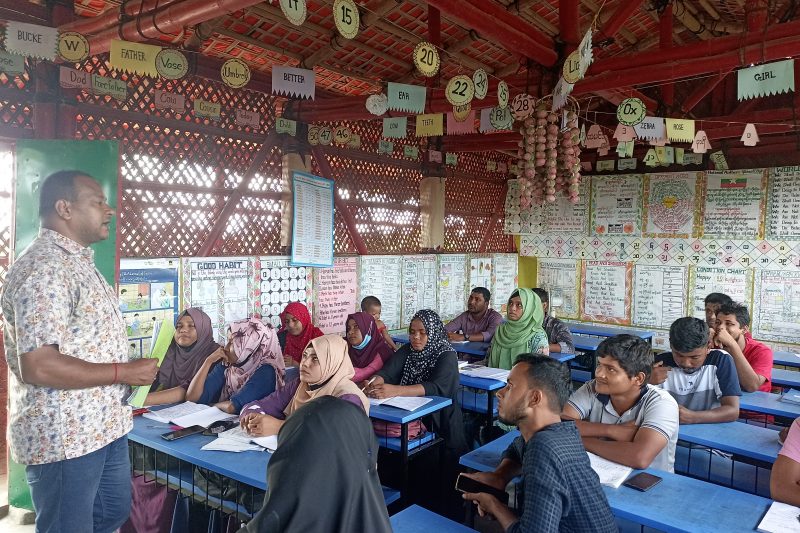
Let us go forward in this battle fortified by conviction that those who labour in the service of a great and good cause will never fail.
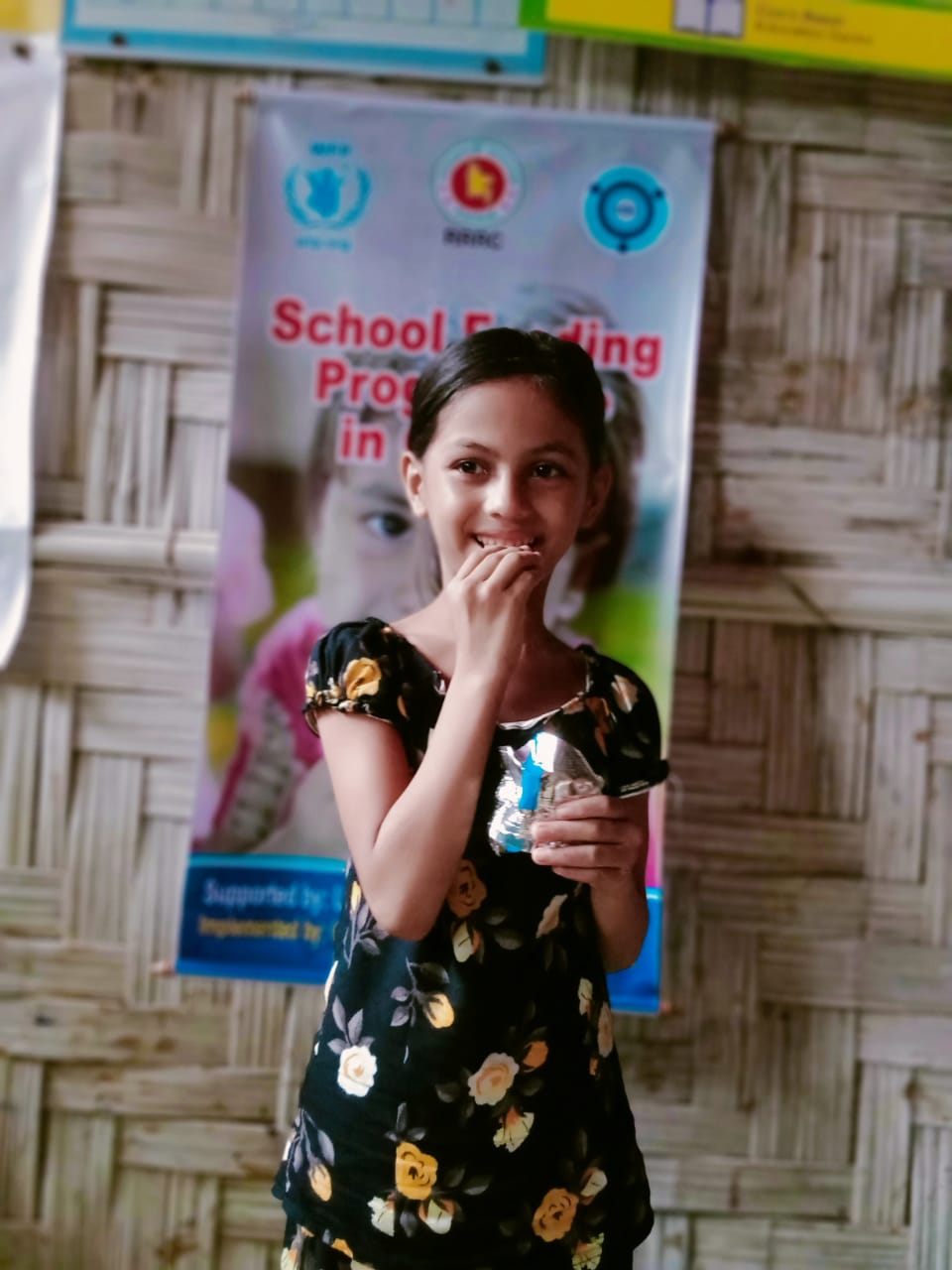
Improvement of the health and nutritional well-being, as well as the school and Learning Center attendance rates, of 285,000 children (with 50% being girls) attending school/Learning Centers across 3,500 Learning Centers in all 33 Camps in Cox’s Bazar.
School Feeding Program (SFP)
CODEC has been working for the marginalized coastal fisher folk communities since 1985 for the well-being of this community by addressing their problems. Various types of problem of fisher-folk community have identified through several FGDs regarding their rights. Domestic violence, early marriage, dowry, divorce, denial of rights is some of the major concerns in Bangladesh at present and CODEC is working is creating awareness to dismantle the problems gradually. The local Imam, marriage register, local attributors along with Union Chairmen, Attribution Council and Village Courts possess knowledge and skills and are motivated to play an efficient and effective role in the community. Union Parishad Chairmen and Rights activists of Human Rights Organizations and Lawyers Panel are working side by side with CODEC to establish a sustainable provision of conflict resolution service. Fisher-folk community has less access to justice and also have less opportunity to input their opinion in the policy formulation. CODEC had taken an initiative to revise “Protection and Conservation of Fish Act, 1950” according to the opinion of fisher-folk community with a consultation of law and policy expert through a project which was funded by Manusher Jonno Foundation (MJF). Poor households in disputes finds affordable access to justice through this sector of CODEC.
